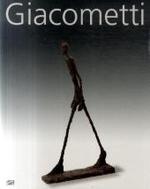- ホーム
- > 洋書
- > 英文書
- > Religion / Ethics
基本説明
Covering Aquinas' life, times, ideas, work and legacy, this Companion is a complete reference guide to this important thinker. Historical essays explore not only Aquinas' life and times but also the key influences on his thought.
Full Description
Thomas Aquinas is one of the most important thinkers of the High Middle Ages. A pivotal figure in the transition from the Ancient to the Modern eras in Philosophy, he also had a lasting influence on Christian Theology that endures to this day. Covering his life, times, ideas, work and legacy, The Bloomsbury Companion to Aquinas is a complete one-volume reference guide to this important thinker. Historical essays explore not only Aquinas's life and times but also the key influences on his thought, from Aristotle to his contemporaries and the most important critics and commentators to have followed him. An extensive A-Z of key terms and critical synopses of his major works provide a comprehensive and accessible overview of Aquinas' thought. The final section charts the development of Aquinas's legacy, from the First Thomism of the 13th century to contemporary Existential and Analytical Thomism. Thoroughly indexed and cross-referenced throughout, with extensive guides to key secondary readings, The Bloomsbury Companion to Aquinas is an indispensable reference resource for those working in Philosophy, Theology or Medieval Thought.
Contents
Editorial Introduction \ Abbreviations \ List of Contributors \ Part ILife \ The Life and Times of Thomas Aquinas \ A Chronology of Aquinas's Life \ A Bibliography of Aquinas's Works \ Part II: Sources and Contemporaries \ Abelard (1079-1142) \ Albert the Great (1206-1280) \ Alexander of Hales (1170-1245) \ Alfarabi (880-950) \ Anselm (1033-1109) \ Aristotle (384-322 BCE) \ Augustine (354-430) \ Averroes / Ibn Rushd (1126-1198) \ Avicebron (1020-1070) \ Avicenna / Ibn Sina (980-1037) \ Roger Bacon (1210-1292) \ Boethius (480-525) \ Bonaventure (1221-1274) \ Giles of Rome (1247-1316) \ Robert Grossteste (1175-1253) \ John of Salisbury (1115-1180) \ Peter Lombard (1100-1160) \ Pseudo-Dionysius (5th-6th C) \ Moses Maimonides (1135-1204) \ Richard of St Victor (1100-1173) \ Siger of Brabant (1235-1284) \ William of Moerbeke (1215-1286) \ Part III: Early Critics \ William of Baglione (????) \ Durand of Saint Pourcain (1270-1334) \ John Peckham (1225-1292) \ Etienne Tempier (d. 1279) \ Robert Kilwardby (d. 1279) \ Gerald of Abbeville (d. 1272) \ William de la Mere (d. 1290) \ Uberto Guidi (d. 1280?) \ Part IV: Commentators \ Domingo Banez (1528-1604) \ Thomas Cajetan (1469-1534) \ John Capreolus (1380-1444) \ Peter Crockaert (1465-1514) \ Sylvester Ferrara (1474-1528) \ Pedro da Fonseca (1528-1599) \ Antoine Goudin (1639-1695) \ John of St Thomas (1589-1644) \ Francisco Suarez (1548-1617) \ Francisco de Toledo (1522-1596) \ Francisco de Vitoria (1485-1546) \ Part V: Concepts, Themes and Topics \ Abortion \ Abstraction \ Accidents \ Act and Potency \ Action \ Agnosticism \ Analogy \ Angels \ Aristotelianism \ Ascension \ Atonement \ Baptism \ Beatitudo/Happiness \ Being \ Bible \ Causality \ Certainty \ Chance \ Change \ Church \ Commentary \ Conscience \ Creation \ Damnation \ Death \ Dispositions \ Disputations \ Distinction \ Divine Nature \ Dualism \ Embryology \ Emotion \ Entelechy \ Error \ Essence \ Eternity \ Evil \ Existence \ Faculties \ Faith and Reason \ Five Ways \ Form and Matter \ Freedom \ Future \ God \ Good \ Government \ Habit \ Hope \ Ideas \ Identity \ and Individuation \ Imagination \ Immortality \ Imperatives \ Incarnation \ Infinity \ Intention \ Intellect, Active and Passive \ Intuition \ Knowledge \ Language \ Logic \ Love \ Mathematics \ Meaning \ Miracles \ Morality \ Motion \ Mysticism \ Nature \ Natural Law \ Naturalism \ Negative Way \ Nominalism \ Obligation \ Ontological Argument \ Participation \ Perfection \ Power \ Prayer \ Predestination \ Principles \ Propositions \ Providence \ Prudence \ Realism \ Reason, Practical \ Reason, Speculative \ Resurrection \ Revelation \ Scholasticism \ Science \ Self \ Sense-perception \ Sex \ Simplicity \ Sin \ Soul \ Species \ Substance \ Theology \ Thomism \ Time \ Transcendentals \ Transubstantitaion \ Trinity \ Truth \ Universals \ Virtues \ Will \ Part VI: Synopses of Key Writings \ Commentaries on Aristotle \ De Aeternitate Mundi (On the Eternity of the World) \ De Ente et Essentia (On Being and Essence) \ De Malo (On Evil) \ De Potentia (On Power) \ De Principiis Naturae (On the Principles of Nature) \ De Regimine Principium (On Government) \ De Unitate Intellectus (On the Unity of the Intellect) \ De Veritate (On Truth) \ Scriptum super Libros Sententiarum (On the Sentences of Peter Lombard) \ Summa Contra Gentiles (Summary of Christian Teaching) \ Summa Theologiae (Summary of Theology) \ Part VII: Influence \ First Thomism (13th to 15th centuries) \ Second Thomism (16th to 18th centuries) \ Neo-Thomism (19th century) \ Transcendental Thomism (20th century) \ Existential Thomism (20th and 21st centuries) \ Analytical Thomism (20th and 21st centuries) \ Index of Aquinas's Works \ Index of Names \ Index of Topics.








